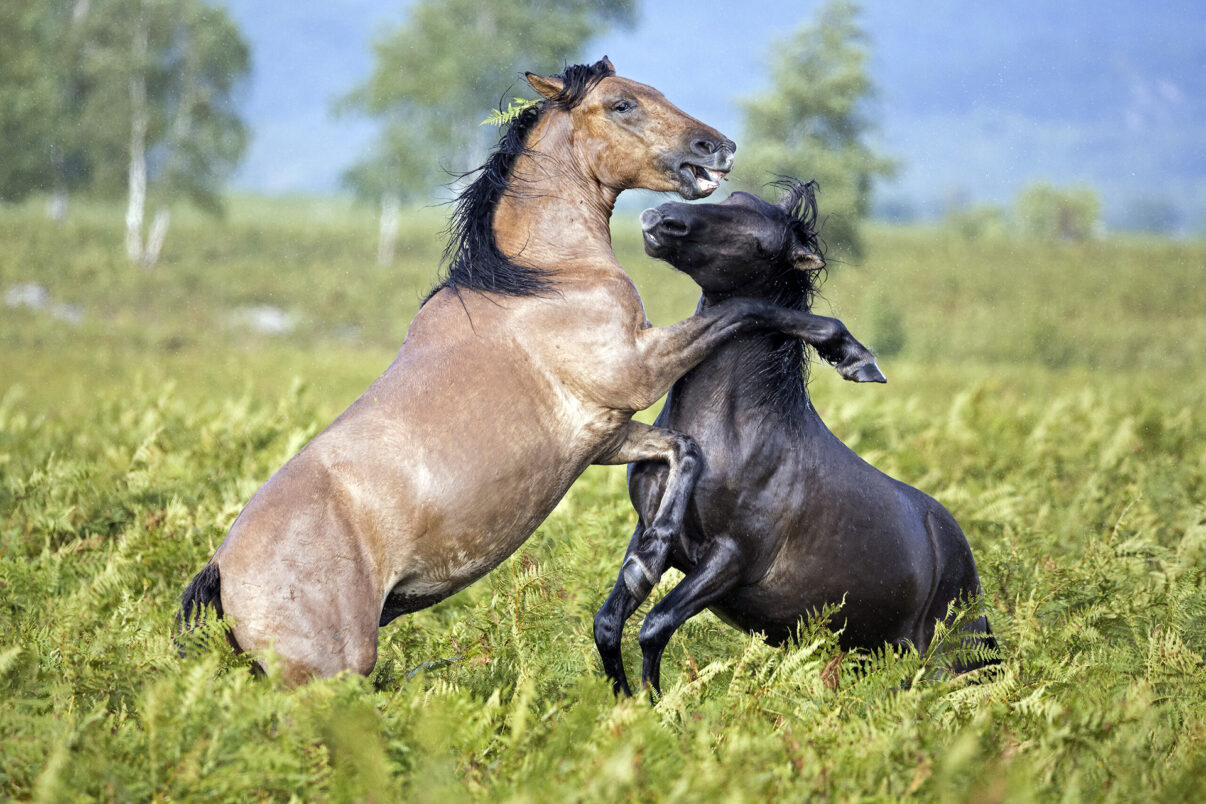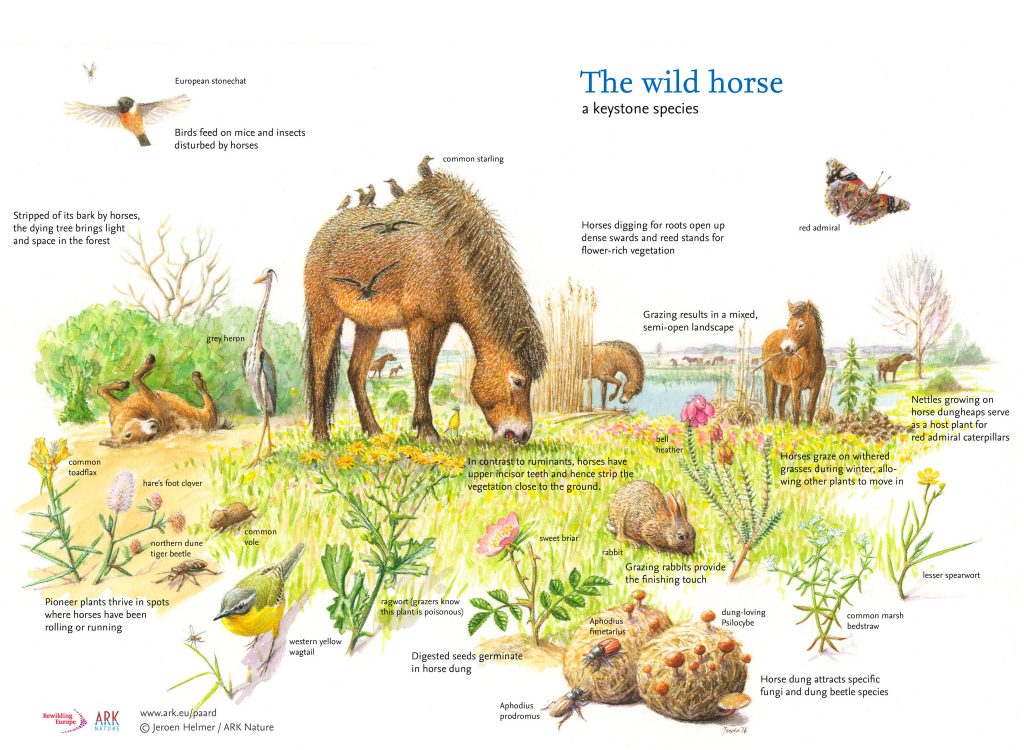Alongside other free-roaming herbivores, wild horses can play an essential ecological role in European landscapes and deliver diverse benefits to people. A new and updated guide from Rewilding Europe will help to scale up European horse rewilding by providing the latest scientific and practical information.

Towards well-functioning ecosystems
Rewilding Europe has just published a new and updated report on rewilding horses in Europe. An authoritative guide to the reintroduction of wild horses in European landscapes, the new publication represents an updated version of a report released in 2013, and is intended for all rewilding initiatives already working with wild horses, or thinking of working with them. Filled with information and insights, it guides the reader through the rich world of European horse types, makes a first selection of horses suitable for rewilding, and gives guidance on how the rewilding of horses should be carried out, in line with the latest scientific and best practice.
Through their natural grazing and other interactions with landscapes and their wildlife, wild and semi-wild horses play an essential ecological role, which is why restoring populations across Europe is so important. Rewilding Europe has been reintroducing horse populations in a number of its own rewilding landscapes for many years.
“By sharing our practical experience of horse rewilding across Europe, together with the latest scientific information, our aim is to help reach the ultimate goal: well-functioning European ecosystems, with the wild horse present as a defining species,” says Rewilding Europe Executive Director Frans Schepers. “Knowledge on this topic continues to develop rapidly, so this publication should be viewed as a live document, which is how Rewilding Europe will use it.”
Majestic and essential
Wild horses once roamed widely across Europe. They helped to maintain biodiversity-rich, half-open, half-wooded landscapes through their grazing, trampling and other behaviour, and were an important part of local food webs. Over time, populations of such horses declined dramatically due to hunting pressure and the rise of domestic livestock and agriculture, and eventually disappeared completely.
Yet while the European wild horse is officially extinct, its genetic material is still found in many European iconic native horse breeds, such as the Exmoor ponies of the United Kingdom and the Hucul ponies of Eastern Europe’s Carpathian Mountains. These rugged animals still boast many of the characteristics of their ancestors, making them particularly suitable for rewilding and the grazing of wild habitats.

The socio-economic perspective
Today, socio-economic changes heighten the importance of returning wild horses to European landscapes. As marginal areas have been abandoned by farmers, so their livestock has also disappeared. After millions of years of natural grazing and some 10,000 years of domestic grazing, large parts of Europe are now lacking this essential natural process. This is why reintroducing large herbivores to European landscapes is one of Rewilding Europe’s key activities, with the wild horse one of our focus species.
In addition to their positive ecological impact, such reintroductions can support the development of thriving economies based more on wild nature and wildlife, with wide-ranging benefits for local communities. They can also help to minimise the risk of catastrophic wildfire outbreaks, which are becoming more common in southern Europe as our climate continues to change.
Rewilding Horses in Europe (second edition) is co-authored by Leo Linnartz of ARK Nature, Renée Meissner of Herds & Homelands, and Rhys Lemoine, based at Aarhus University in Denmark.

